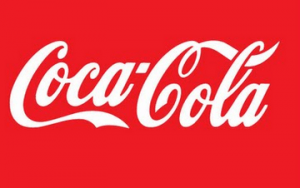Coca-Cola says it remains committed to plastic reduction
 Beverage manufacturing giant, Coca-Cola Bottling Company, says it is on course to reduce the number of plastics used in its operations by 2030.
Beverage manufacturing giant, Coca-Cola Bottling Company, says it is on course to reduce the number of plastics used in its operations by 2030.
The company, in 2018 pledged robust “World Without Waste” goals to collect and recycle the equivalent of a bottle or can for everyone the company sells by 2030, make 100 per cent of packaging recyclable by 2025 and use 50 per cent recycled material in bottles and cans by 2030.
Speaking to the media after the company embarked on plastic and can waste collection exercise at Teshie in the Ledzokuku Municipality in the Greater Accra Region, Mr Bethel Yeboah, Corporate Affairs Director for the West African Countries Business Unit, Equatorial Coca-Cola Bottling Company said significant progress was made since the initiative was launched.
He said the company had so far reduced the use of plastic by about 30 per cent, while it had also collected 100 per cent of all sold and used plastics from the market.
“I am happy to say that from Coca-Cola we have been able to reduce the number of plastics that we use in our packaging as much as about 30 per cent, the weight has been reduced by 17 per cent if you calculate,” he said.
The exercise, organised in collaboration with the Ledzokuku Municipal Assembly (LEKMA) and SesA, a social enterprise, focused on reducing plastic pollution, formed part of Coca-Cola’s activities to commemorate its 25th anniversary and also help achieve its plastic waste reduction target.
Plastic waste has been a major concern for governments across the world, with some experts calling for the creation of circular economies, which eliminate single-use plastic in favour of organic materials or plastics that can be recycled and reused.
Globally, it is estimated that about 13 million metric tonnes of plastic waste enter the oceans annually.
In Africa, less than 20 per cent of plastics are recycled currently, far below European Union targets of 50 per cent by 2025, while in Ghana only five per cent of plastics are recycled.
Mr Yeboah called for attitudinal change among citizens to ensure that the plastic waste menace was addressed, adding that beverage producing companies must also make a conscious effort to reduce the number of plastics they use in production.
He also urged the government to set up waste segregation facilities in the various landfill sites to ensure that plastic wastes were properly separated to facilitate the recycling process.
Mr Christopher Gyan-Mensah, Director of Operations SeSA, said his outfit, since January this year, had collected 132,626kg of plastic waste and 128kg of aluminium.
He bemoaned the inadequacy of recycling machines to process the large tons of waste, a situation he explained compelled them to export the waste, which affected their income due to the high shipping fee.
He appealed to the government to create a space where all collected plastic waste would be segregated and kept for recycling.
Mr Yaw Adusei, Waste Management Officer at LEKMA, said the Municipality would continue to grapple with plastic waste despite authorities’ efforts to curb the trend.
He urged community members to desist from throwing plastic wastes around and rather keep them to exchange them for cash.
Meanwhile, some plastic waste pickers have appealed to the authorities to increase the amount they pay for a kilogramme (KG) of plastic and can waste to serve as an incentive.
Madam Beverlyn Otiko Tetteh, a plastic waste picker, in an interview with the Ghana News Agency, said the current amount paid for their services was woefully inadequate and demoralising.
Currently, SeSA, a plastic waste buying company, pays GHS2.00 per KG of cans and 50 pesewas for a KG of plastic bottles.
Madam Beverlyn said: “We don’t collect the wastes because of poverty but it will only be fair that appropriate amount is paid to serve as an incentive for us and encourage more people to get involved to get the environment of this filth.”
Source: GNA
